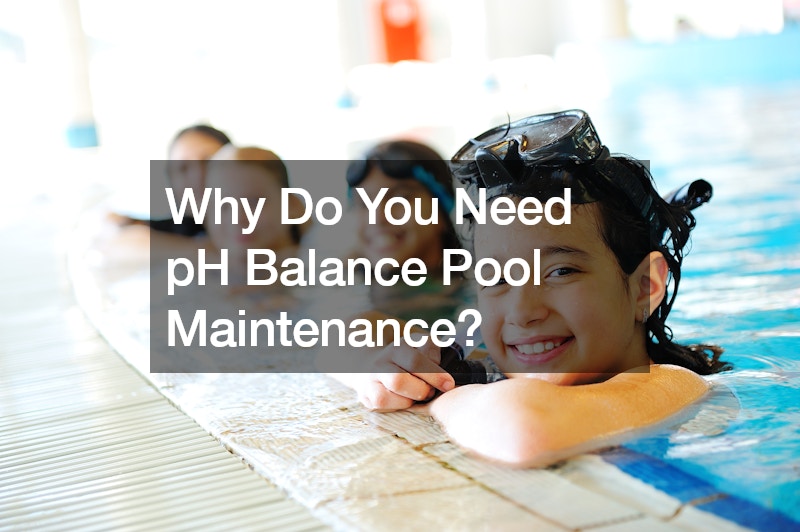Maintaining the pH balance of a swimming pool is a fundamental aspect of pool care, crucial for the comfort of swimmers, the effectiveness of sanitizing chemicals, and the longevity of pool equipment. The pH level of pool water, which measures its acidity or alkalinity, should ideally be kept between 7.2 and 7.8. Here’s why pH balance pool maintenance is essential:
Swimmer Comfort and Safety
A properly balanced pH level ensures that the pool water is comfortable and safe for swimmers. When the pH is too high (alkaline), it can cause skin and eye irritation, making swimming an unpleasant experience.
Conversely, a pH that is too low (acidic) can lead to similar discomfort, including dry skin and eyes. Additionally, an imbalanced pH can affect the effectiveness of chlorine, the primary chemical used for sanitizing pool water. Chlorine works optimally within a specific pH range, and deviations from this range can reduce its ability to kill bacteria and other harmful microorganisms, posing a health risk to swimmers.
Effective Sanitization
The efficacy of chlorine and other sanitizing agents is highly dependent on the pH level of the pool water. Chlorine, for instance, is most effective when the pH is between 7.2 and 7.4. Outside this range, chlorine’s ability to disinfect diminishes, meaning more chlorine will be required to achieve the same sanitizing effect. This not only leads to higher costs but can also result in over-chlorination, which can be harmful to both swimmers and pool equipment. Maintaining a balanced pH ensures that sanitizers work efficiently, keeping the pool water clean and safe.
Preventing Scale and Corrosion
An imbalanced pH can lead to the formation of scale or corrosion, both of which can damage the pool and its equipment. High pH levels cause calcium and other minerals to precipitate out of the water, forming scale on the pool surfaces, plumbing, and equipment. This scale buildup can clog filters, reduce water flow, and damage heaters and other components. On the other hand, low pH levels can be corrosive, eroding pool surfaces and metal fixtures, leading to costly repairs and replacements. By maintaining the proper pH balance, you can prevent these issues and extend the life of your pool and its equipment.
Water Clarity
Balanced pH levels contribute to the overall clarity of the pool water. High pH can make the water cloudy, while low pH can cause metals to dissolve, giving the water a green or brown tint. Clear water not only looks more inviting but also indicates that the pool is properly maintained and safe for swimming.
.



